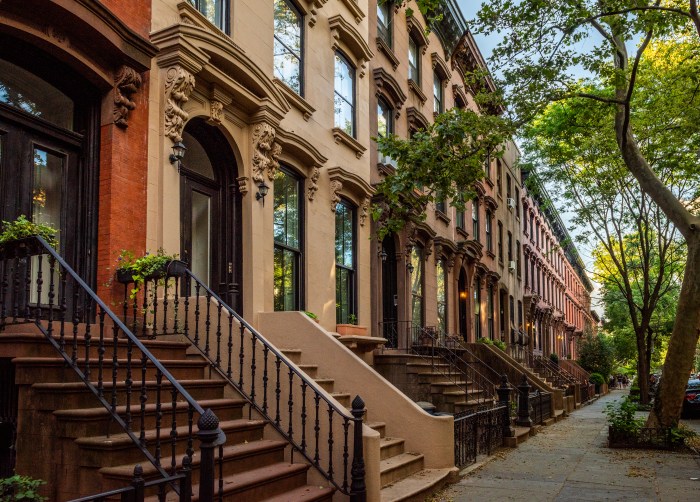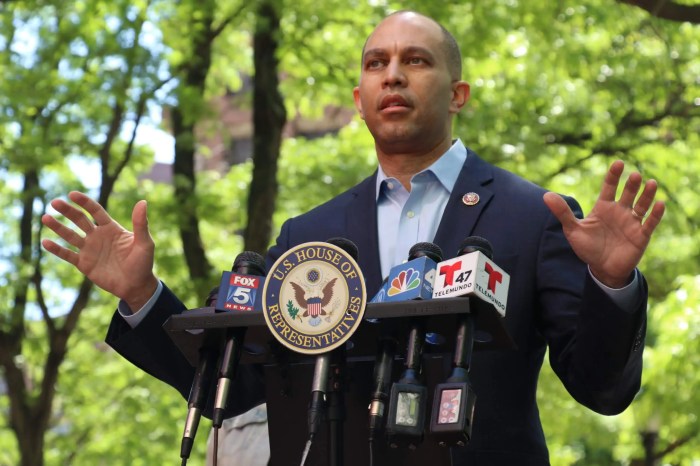In an age of economic downturn, political discord and social disconnect, one issue more than any other is still able to inflame and provoke.
Of course we’re talking about bike lanes.
Perhaps it’s a reflection of how great most everything else is here in Brooklyn that the only thing left to complain about is cyclists and how their zero-emissions vehicles keep getting in the way of everyone else’s cars.
In Brooklyn Heights, the First Presbyterian Church means that quite literally. Parishioners, frustrated by a lack of parking in the neighborhood, have long received dispensation from the 84th Precinct to park on Henry Street — blocking the long-established bike lane there.
Last week, Assemblyman Joan Millman (D–Carroll Gardens) heralded a bold new “compromise”: Church-goers could still park in the bike lane, but only during church hours — not that they parked there at other times.
And this is the compromise?
On Sunday, our reporters saw plenty of near misses, as cars blocked the bike lane, and other cars disgorged passengers. Signs in the windows of the vehicles had placards reading, “Church business.”
Our position: The only “business” on Henry Street should be conducted by the police, who should be ticketing cars in the bike lane. And Joan Millman needs to consult a dictionary.
Meanwhile, in Park Slope, the Prospect Park West bike lane controversy still rages on, thanks in part to the Department of Transportation’s announcement that it might un-install the protected cycle path if the agency decides that it is not working.
Our position: It’s working. The two-way lane did require the elimination of one lane of southbound traffic on the broad avenue, and it has altered the historic “look” of the boulevard between Grand Army Plaza and Bartel Pritchard Square. But it has also accomplished its main goal: slowing down cars along the speedway.
Borough President Markowitz, a longtime opponent of this particular lane, used this week’s dueling rallies to lambaste the Department of Transportation as hell bent on “stigmatizing cars.”
“Do we want to replicate Amsterdam?” the blustery Beep asked, referring to the principal city of Holland, where New York has its roots.
Our position: We’ve been to Amsterdam, and a more civilized urban environment would be hard to find anywhere else in the world. And that’s not the legal marijuana talking, it’s the bike lanes — lavish, well-connected, extremely popular bike lanes that make Amsterdam a model for the world.
Our advice to the Department of Transportation? Can we be more like Amsterdam, please?






















